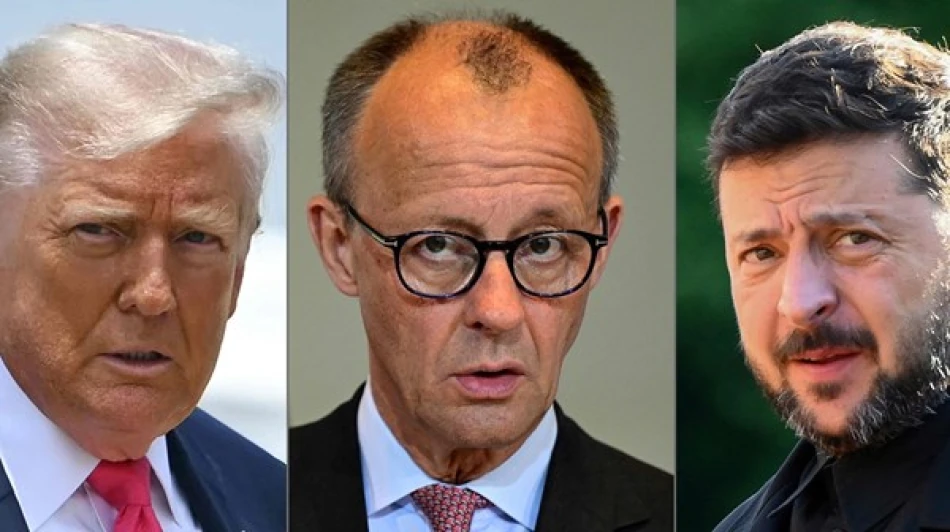
Germany Hosts Talks with Trump, EU, and Kyiv Amid Global Tensions
Germany Orchestrates Pre-Summit Strategy Session as Trump-Putin Meeting Looms
Germany is convening a high-stakes virtual meeting Wednesday bringing together President Trump, European leaders, Ukraine, NATO, and EU officials to coordinate Western positions just 48 hours before Trump's scheduled bilateral talks with Vladimir Putin. The German-led initiative signals European concerns about being sidelined in potential Ukraine peace negotiations and represents a calculated effort to present a unified front before the two superpowers meet privately.
Strategic Timing Reveals European Anxieties
The timing of Germany's diplomatic intervention is no coincidence. Stefan Cornelius, spokesperson for German Chancellor Friedrich Merz, announced that Wednesday's virtual summit will focus on "preparing for potential peace negotiations" and address critical issues including "territorial claims and security guarantees," plus additional measures to "pressure Russia."
This coordinated approach reflects deep-seated European fears that Trump might negotiate directly with Putin without adequate consultation with allies—a concern rooted in Trump's previous presidency when he often bypassed traditional diplomatic channels and expressed admiration for the Russian leader.
Ukraine Pushes for Inclusion in Superpower Talks
Both Kyiv and European capitals are demanding that Ukrainian President Volodymyr Zelensky participate in the Trump-Putin summit scheduled for Alaska this Friday. This demand underscores a fundamental principle that has guided Western policy since Russia's 2022 invasion: "Nothing about Ukraine without Ukraine."
The insistence on Ukrainian participation represents more than diplomatic courtesy—it reflects lessons learned from historical negotiations where major powers carved up smaller nations' territories without their input, from Yalta in 1945 to various Cold War-era agreements.
Germany Steps Into Leadership Vacuum
Germany's initiative to organize pre-summit coordination marks a significant moment in European diplomacy. With France politically weakened and the UK outside the EU, Germany is asserting leadership on the continent's most pressing security crisis since World War II.
This move also reflects Berlin's evolution from its historically cautious foreign policy stance. The same country that initially resisted sending weapons to Ukraine and maintained energy dependence on Russia is now actively orchestrating Western diplomatic strategy.
High-Stakes Diplomacy With Uncertain Outcomes
The virtual meeting represents a critical test of transatlantic unity at a pivotal moment in the Ukraine conflict. European leaders face a delicate balancing act: supporting diplomatic efforts to end the war while ensuring any agreement doesn't reward Russian aggression or compromise Ukraine's sovereignty.
For Trump, the Wednesday session offers an opportunity to demonstrate consultation with allies before his Putin meeting, potentially deflecting criticism about unilateral decision-making. However, it also constrains his negotiating flexibility by establishing collective Western positions beforehand.
The success of Germany's coordination effort could determine whether the West enters potential peace negotiations with a unified strategy or fractured priorities—an outcome that will likely influence not just Ukraine's future, but the broader architecture of European security for decades to come.
Most Viewed News

 Layla Al Mansoori
Layla Al Mansoori






